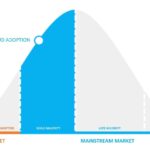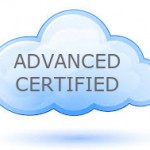Embracing the Cloud: Why QuickBooks and Integrated Apps are the Future of Accounting
The cloud offers a perfect opportunity to connect business applications, creating seamless data sharing and integration. QuickBooks Online (QBO) is perfectly designed to create these connections, acting as the central hub around which an ecosystem of applications revolves. This system creates an opportunity for small businesses worldwide to thrive by connecting QuickBooks with a wide range of third-party apps, all centered around its hub.
Intuit (the creator of QuickBooks), is not just a provider of accounting software but an all-around platform for small businesses. With QuickBooks Online being at the center of an extensive system of applications, enhancing the functions and efficiencies of small businesses. While some of these applications are developed by Intuit, the majority are crafted by third-party developers, all designed to integrate seamlessly with QBO.
The Power of Automation
One of the most compelling reasons to use these apps is automation. Cloud-based applications can automate many manual processes, significantly increasing efficiency. By integrating with QBO, these apps ensure data is entered only once, reducing the potential for human error, and eliminating any redundancy.
Automation through these applications also introduces features that can streamline business operations. For example, businesses can schedule appointments online, send payments electronically, or sell products via their websites. These features save substantial time and effort, creating significant cost savings on labor and time spent correcting errors.
Examples of App Integration
Imagine a sales team using an invoicing app connected to QBO. The invoicing app can access customer, job, and product/service data from QBO, allowing the sales team to create invoices without even logging into QBO. Once an invoice is created, it is automatically sent to QBO, recording the revenue without needing a second entry.
An inventory management app can track individual product details and post necessary adjustments to the general ledger. A field service app can help dispatch service staff, providing them with customer and order information and recording sales and payments in QBO. Similarly, HR departments can manage payroll and employee details through integrated apps, syncing wage and tax expenses with QBO without entering anything manually.
Enhancing Security and Fraud Prevention
Another advantage of using integrated apps is the enhanced security and fraud prevention they can offer. Web-based accounting solutions are typically protected with bank-level security, including password protection, data encryption, automatic backups, and constant availability.
Web-based systems also safeguard organizations from the vulnerabilities associated with physical file cabinets and desktop programs, which can be easily stolen. By moving to cloud-based systems, businesses can ensure sensitive data is not stored on easily accessible hard drives, reducing the risk of data breaches.
One critical security feature is improved access control. Cloud-based infrastructures allow multiple users to access data securely from various locations and devices. This capability eliminates the security risk of having only one person with access to critical accounting software. Different permission levels can be assigned based on roles, ensuring secure access and control over sensitive data.
Streamlining Access and Workflow
Access to data is important for both security and operational efficiency. Cloud accounting solutions provide business owners and staff with real-time visibility into financial activities. This transparency not only helps in making informed decisions but also assures staff that financial oversight is maintained.
Cloud apps facilitate the separation of duties among users by granting access to specific apps based on their roles. Sales teams can be invited to use the CRM app, warehouse staff to the inventory app, and field service crews to the field service app, while QBO remains the domain of the accounting staff. This segmentation enhances control and security of the general ledger.
Many apps also come with audit trails and additional security features, such as electronic payments and online timesheets with GPS tracking, preventing fraudulent activities like buddy-punching.
Customizing Your Business Infrastructure
QuickBooks Is great at managing core accounting functions without becoming overrun with unnecessary features. Intuit’s strategy encourages businesses to use additional apps to customize their infrastructure according to their unique needs. This approach allows QuickBooks to remain focused and efficient while providing businesses with the flexibility to integrate additional functionalities through third-party apps.
Intuit supports this integration through an open API, enabling developers to create apps that communicate and interact with QBO. These apps can be designed for private use by a single business or offered publicly for others to use. Intuit ensures the security of these public apps through rigorous certification processes.
Intuit’s Developer Nation initiative demonstrates its commitment to supporting developers in creating apps that enhance the QuickBooks ecosystem. This initiative includes resources, conferences, and toolkits to facilitate app development, ensuring businesses can build customized solutions on the QuickBooks platform.
Transitioning to a Cloud-Based Infrastructure
As businesses move to cloud accounting infrastructures, they often encounter concerns about the cost of apps, which typically involve recurring monthly fees instead of one-time software purchases. However, these costs are often offset by the significant savings in labor and improved efficiency. For example, using an app like Bill.com for bill payments can eliminate the manual process of printing and mailing checks, saving time and reducing labor costs.
Also, apps like Expensify streamline expense report management by automatically recording data in QuickBooks, eliminating the need for manual data entry and reducing errors.
Connecting an App to QuickBooks Online
Before connecting an app to QBO, research is essential. Evaluate the app’s features, read reviews, watch demos, and understand how the app integrates with QuickBooks. Determine the data flow between the app and QBO, and maybe consider testing the app in a trial QBO company to ensure it meets your needs.
When ready to connect the app, ensure you are an Admin user in QBO, log out of all QuickBooks or Intuit websites, and follow the steps to connect the app through apps.com or directly within QBO.
Conclusion
By embracing the cloud and integrating QuickBooks with specialized apps, businesses can create a customized, efficient, and secure infrastructure that supports their specific needs for greater success.
Automation through cloud-based apps provides accurate financial information faster. Involving your accounting department staff in the transition process ensures they become advocates for the new systems, supporting a smooth and successful shift to cloud accounting.
Need help setting up third-party apps, or just starting your cloud-based accounting department? If you’re a business owner looking for one-on-one guidance in implementing a cloud accounting department, schedule a call here.
If you’re a business owner or accountant looking to DIY your cloud accounting system, sign up for our course where we walk you through all the ins and outs of how to do so. You can learn more about our course here.






